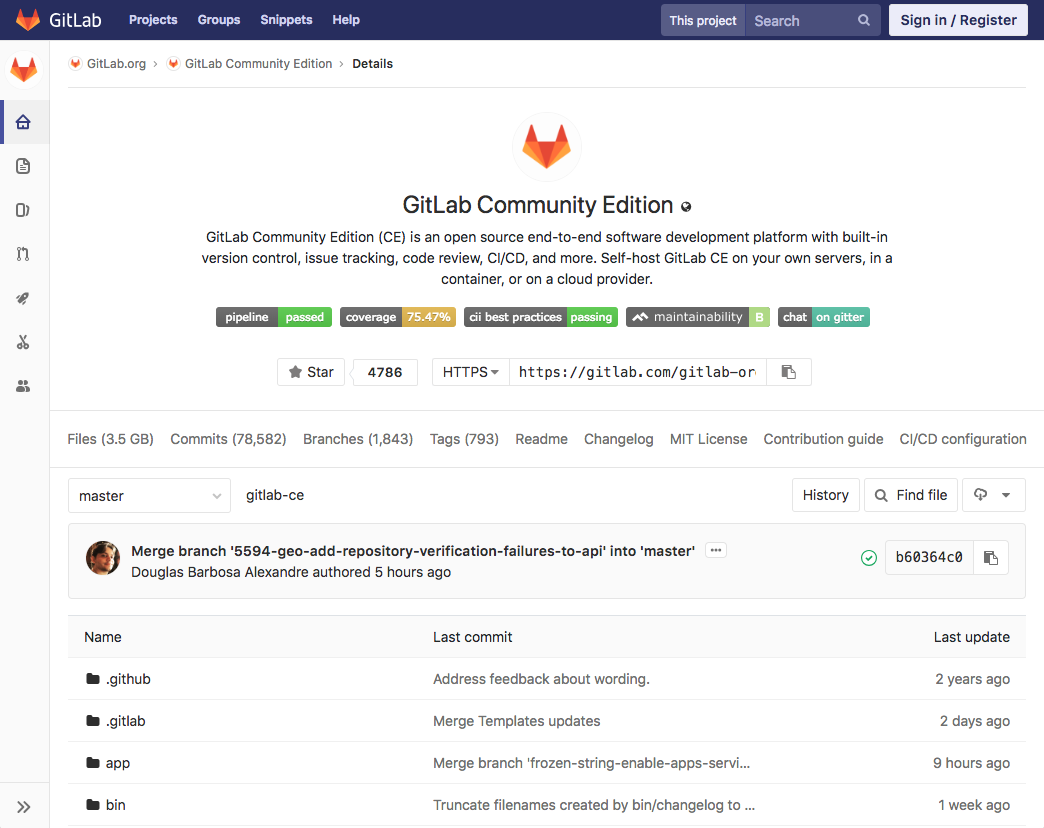Why We're Switching from GitLab to GitHub: Typedream's Stack
Sharing Time! – we're moving from GitLab to GitHub! Why, you ask? It's all about staying ahead in tech world and giving our team the best tools to shine.
TLDR of Our Decision:
- Developer Freedom and Efficiency: GitHub's vibe just clicks with our aim to give our devs more control and collaboration options. It's like giving them a bigger playground to innovate and excel.
- Smoother Audits, Less Headache: Audits can be a pain, right? We've realized that GitHub can make this a whole lot easier. Think less time scrambling for compliance stuff and more time doing what we love – coding!
- Riding the Wave of Innovation: GitHub's not just about storing code; it's a hub of new tech. With cool AI tools like GitHub Copilot, we're gearing up to surf the wave of innovation.
Understanding Typedream's Choice: GitHub vs. GitLab
Alright let the showdown between GitLab and GitHub begin. Both are excellent platforms, but they cater to different needs and workflows. Let’s break it down.
Developer Freedom with GitHub
- Community and Collaboration: GitHub is the largest host of source code in the world, making it the go-to platform for open-source projects. Its massive community is a goldmine for collaboration, networking, and exploring innovative projects.
- Interface and Ease of Use: With its user-friendly interface, GitHub is accessible for beginners and seasoned developers alike. It's an intuitive platform for hosting code, managing projects, and tracking issues.
- Unique Features: GitHub Actions for CI/CD and Dependabot for security are some standout features. The platform also offers various integrations and tools that enhance the development workflow.
Comprehensive DevOps with GitLab
- Integrated DevOps Lifecycle: GitLab offers a comprehensive suite of tools covering everything from project planning to monitoring and security. It's an all-in-one platform for the complete DevOps cycle.
- Self-Hosting and Flexibility: For teams looking for greater control over their environment, GitLab’s self-hosting capabilities are a significant advantage. It offers flexibility and customization to suit different project needs.
- Built-in CI/CD: Unlike GitHub, where CI/CD is integrated via Actions, GitLab has a robust built-in CI/CD pipeline, making it easier to deploy and manage your applications seamlessly.
Deeper Dive GitHub vs GitLab:
A detailed comparison of GitLab vs GitHub
- Pricing & Plans:
- GitHub: Offers a free plan with unlimited public and private repositories but limited CI/CD minutes. Paid plans include Team and Enterprise, adding advanced collaboration features, support, and CI/CD minutes.
- GitLab: The free tier provides unlimited private projects and more CI/CD minutes than GitHub. Paid tiers, such as Premium and Ultimate, add features like advanced CI/CD pipelines, security scanning, and compliance.
- Usage & Community:
- GitHub: Known for its vast community, making it a hub for open-source projects and collaborative development. It's user-friendly, making it popular among beginners and professionals.
- GitLab: Offers a more integrated approach to the DevOps lifecycle, appealing to teams looking for a comprehensive toolset from code management to deployment and monitoring.
- Features & Tools:
- GitHub: Strong in collaboration features, issue tracking, GitHub Actions for CI/CD, and a robust ecosystem of integrations. GitHub's security features have been expanding, including Dependabot for dependency scanning.
- GitLab: Offers a more extensive set of integrated tools covering the entire DevOps cycle, including project management, built-in CI/CD, security and compliance testing, and Kubernetes integration.
- Interface & Experience:
- GitHub: Praised for its intuitive and user-friendly interface. Its straightforward design is preferred for code hosting and collaboration.
- GitLab: Offers a more complex interface due to its comprehensive toolset, which might have a steeper learning curve but is highly appreciated for its all-in-one solution.
So, Which One Should You Choose?
The decision boils down to your team’s specific needs and workflow preferences:
- Go for GitHub if:
- Your focus is on open-source projects or community-driven development.
- You prefer a platform with a straightforward, user-friendly interface.
- You value a vast network for collaboration and exploring new technologies.
- Choose GitLab if:
- You need an integrated solution covering the entire DevOps lifecycle.
- Your project requires comprehensive CI/CD pipelines and project management tools.
- You prefer having the option for self-hosting and more customization.
Typedream’s Perspective:
At Typedream, we believe in choosing tools that align with our project goals and team dynamics. Both platforms offer unique strengths – GitHub excels in community engagement and simplicity, while GitLab stands out for its comprehensive DevOps features.
Your choice should be guided by what will make your team most efficient and your projects successful. Whether it’s GitHub’s collaborative community or GitLab’s all-in-one approach, the right platform is the one that best fits your development journey.
Keep innovating, and choose the platform that turns your coding dreams into reality!
Stay tuned for more insights and discussions on the latest in tech at Typedream. Happy coding! 🚀👩💻👨💻
BUILD IT TODAY WITH OUR AI WEB BUILDER
It's time to launch that product
We're a remote software company, building online tools for creators, builders, and side hustlers. We quit our 9-5 to pursue our dreams, and we want to help others do the same.
Copyright © 2025 beehiiv, Inc. All rights reserved.
Made in Typedream



